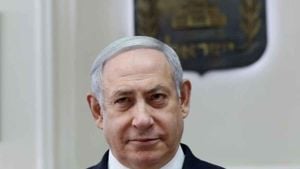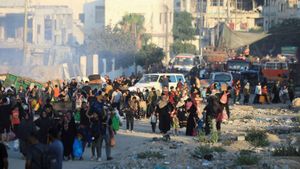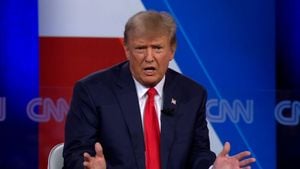Former Ukrainian Foreign Minister Dmytro Kuleba has recently made headlines with his sharp criticism of South Korea, pointing out the country’s lackluster response to North Korean troops being deployed to the Ukraine front. During an interview with 24 Kanal, Kuleba expressed his disappointment, stating, "Is South Korea responding adequately to the presence of North Korean soldiers on our front? I don’t think so." His argument underlines the expectation he has for wealthier nations such as South Korea to stand firmly with Ukraine during its tumultuous conflict with Russia.
Utilizing his position, Kuleba suggested South Korea could contribute significantly to Ukraine’s defense efforts, proposing they could fund production lines for weaponry by investing “a billion or two.” He emphasized the ability of Ukraine's defense industry, often hailed as a management marvel by international observers, to produce necessary military supplies, provided it had enough funding. "They could do more, they should do more, but they continue to follow the logic of not wanting to escalate and are waiting to see how things evolve," Kuleba stated, pushing against South Korea's current stance.
He also added, “discussions about 'avoiding escalation' are baseless,” highlighting the constant aggression from Russia. Kuleba is particularly insistent on the notion, reflecting the sentiment many Ukrainians share – fear not of escalation, but of potential defeat. "How much more can this escalate? Missiles, 'Shaheds' are flying, and we see what’s happening at the front. What's there to be afraid of? The real worry seems to be Ukraine’s victory leading to Russia's collapse," he concluded.
Meanwhile, Ukrainian President Volodymyr Zelenskyy has echoed similar sentiments during public appearances. Following the European Political Community summit on November 7, Zelenskyy reflected on conversations with U.S. President-elect Donald Trump, stressing the unpredictability surrounding the conflict’s resolution. “Sure, we had good discussions, but wanting something doesn’t guarantee it’ll happen,” he noted, introducing the reality of the perilous situation they face.
Zelenskyy articulated the magnitude of the threat posed by Russia, stating, “We are at war with the Russians – the most challenging enemy of this century,” emphasizing not only the territorial but ethical stakes involved. He commented on Putin's ambitions, saying, “This person wants to tear Ukraine to pieces. What he can’t swallow, he wants to consume piece by piece.” He strongly believes the pursuit of peace could entail substantial losses for Ukraine.
His commitment to fighting back was evident as he justified the fight for Ukraine’s survival: “Every city deserves security and peace,” asserting the importance of sovereignty over territory alone. Throughout this discourse, Zelenskyy has warned against complacency, indicating the psychological and physical readiness necessary for any potential outcome, especially considering the uncertainty coming from international dialogues.
These calls for greater support come amid increasing incursions by North Korean forces on Ukrainian soil, as detailed by Zelenskyy. He has previously indicated they are seeing not only more North Korean military presence but also fewer responses from traditional allies. “We’re seeing an increase in the number of North Koreans, not our partners’ responses. It’s concerning,” he declared, leaving many to question the nature and reliability of international support structures.
A sobering picture of the battlefield emerged following recent attacks, including missile and drone strikes on Kyiv, highlighting the persisting intensity of the conflict. Reports indicate injuries and widespread damage across various regions, underscoring the stakes involved not just for Ukraine, but the reality of global geopolitical dynamics shifting against Russian aggression.
Adding to the grim scenario, Zelenskyy indicated continued concerns for residents as guided bomb strikes have risen death tolls, particularly hitting areas like Zaporizhzhia. The subsequent military actions draw attention to the need for shelter and effective civil defense systems, propelling Ukraine to call for reinforced military aid.
On the diplomatic front, Zelenskyy was candid about the need for vigilance and readiness, especially echoing Kuleba’s earlier comments on potential funding discrepancies from allies. His hope rests on fostering substantial bilateral agreements moving forward, aiming to secure international assistance and bolster Ukraine’s defenses against impending threats.
The continuous assault from Russian forces brings with it the haunting prospect of escalation and global instability, compelling leaders to reevaluate their positions and responses. Both Kuleba and Zelenskyy illuminate the stark realities of this enduring conflict, accentuating the role of international cooperation, funding, and the grave need for unified action against the shaping tides of tyranny.
All eyes remain on the global reactions as Russia's aggressive posturing continues to strain relationships and create ripple effects across borders. The call to arms, both literally and figuratively, resonates as Ukraine grapples with existential threats and the quest for sustainable peace.



